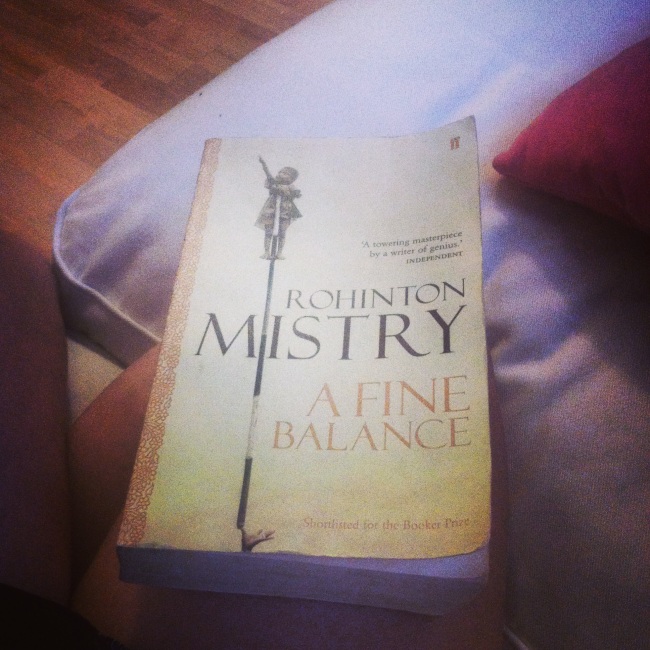So as mentioned in my previous post, I have just been away in India… well it may not surprise you, given that many of the books I have read and love this year have been India – but I am somewhat obsessed with India. It just fascinates me. So, I thought it would be apt to read another book by Rohinton Mistry, author of A Fine Balance, which has been possibly my favourite book of the year!
Such a Long Journey, is set in 1970’s Bombay and revolves around a Parsi family, headed by Gustad Noble, an honourable and devoted family man, who works hard to keep his family safe and out of poverty. The main action of the novel revolves around the struggles of his family – his son Sohrab defies his father by refusing to go to engineering college, whilst his little daughter falls sick. Alongside these family dramas, Gustad becomes embroiled in the politics of the day – the controversial rule of Indira Gandhi – and becomes unwittingly involved in a secret plot against the government.
Such a Long Journey is beautifully written, but it what I would call a quiet novel. The plot is slow moving and largely centred around the family and domesticities, meaning that it is light on action and excitement. Instead it is atmospheric and subtle. Enjoyable but not thrilling or gripping and despite being in India while reading this book, I did not connect with it in the same way that I did with A Fine Balance. Of course that is the book that I wished I could have read in India – I think it is always going to be one of those books that I could read all again for the first time. I did try to encourage my fellow yogi travellers to read it (someone had brought along a copy) but we were all too preoccupied by the sun and the pool and the food and taken in by the chilled out way of life in Goa. I guess when you love a book so dearly, anything else will never live up to it, and despite it’s subtleties, Such a Long Journey is still beautifully and intricately written. And of course I learnt something about a period of turmoil in India that I had no appreciation for at all. Well worth a read, but read A Fine Balance too!!


